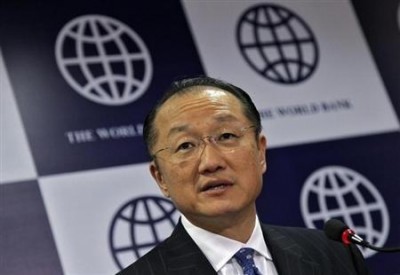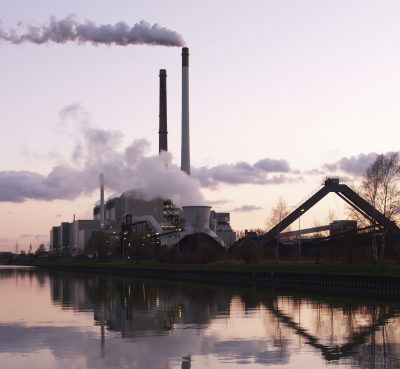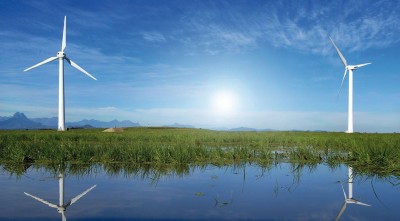 World Bank President Jim Kim continues to make strong statements about the threat of climate change to development and poverty alleviation, but the World Bank has still not put a stop to funding climate-changing fossil fuel projects.
World Bank President Jim Kim continues to make strong statements about the threat of climate change to development and poverty alleviation, but the World Bank has still not put a stop to funding climate-changing fossil fuel projects.
Over 55 civil society groups from more than 20 countries have sent the following letter, demanding that the Wold Bank end support for all fossil fuel projects unless the project’s sole purpose is directly increasing energy access for the poor.
Dr. Jim Yong Kim
President
The World Bank
1818 H Street, NW Washington, DC 20433 USA
April 3, 2013
Dear Dr. Kim,
In your first months as President at the World Bank, you have spoken repeatedly about the severe consequences of climate change for people in developing countries. You have been forceful in your calls for reducing poverty in those same communities to increase their resilience to climate change. We thank you for calling attention to this critical issue and for committing to make climate change a top priority of your presidency.
However, we, the undersigned representatives of development, environment, faith- based, human rights, and community groups, also believe that the World Bank cannot meaningfully address climate change unless its lending practices, and core energy portfolio, do not further exacerbate the climate crisis and its impact on vulnerable communities. It is by this measure, rather than words, that we judge the World Bank’s commitment to addressing climate change.
We call on all international financial institutions to stop using public resources to subsidize the fossil fuel industry. These subsidies overwhelmingly fail to provide energy access to the world’s poor. Instead they fuel overconsumption in wealthy countries, benefit an already highly profitable and well- ?established industry, and compound many of the most urgent social and environmental problems facing humanity today, not the least of which is climate change.
The World Bank Group and other development financiers have long argued that continued fossil fuel lending is important to achieving development goals for the world’s poorest, but we have seen time and again that this is simply not true. A recent examination of the World Bank’s energy lending found that none of the World Bank Group’s fossil fuel finance in 2009 or 2010 directly targeted the poor or ensured that energy benefits reach them.1
In most instances, the one billion people globally who lack access to electricity have not benefited from continued investments in large, centralized fossil fuel power projects, particularly coal plants; even large increases in electricity supply have yielded little increase in electrification rates in many countries. Large- scale fossil fuel extraction projects have also brought with them a myriad of health, development and environmental problems while reaping little to no financial gains for poor communities.
In stark contrast, it is now clear that off- grid installations are dramatically cheaper than energy and infrastructure mega- ?projects, and are more efficient and cost- effective at providing energy access to the poor. Prioritizing interventions that catalyze off- grid renewable energy deployment will therefore significantly aid in the achievement of development goals targeted at the world’s poorest. These investments also increase the resilience of these communities to climate change.
As the World Bank again enters into discussions of its approach to energy and climate-related lending, it is time for the Bank to end support for all fossil fuel projects (other than assistance with transition, such as mine closure) unless it can be clearly demonstrated that (1) the project’s sole purpose is directly increasing energy access for the poor, and (2) a full examination of all costs – including damages to public health, welfare, the environment, and the climate – of the proposed project and any new renewable and efficiency alternatives demonstrates that it is the best alternative for delivering energy services to the poor. We believe that you will find few, if any, fossil fuel- based projects that meet these criteria.
Unfortunately, the World Bank Group continues to promote interventions, such as providing subsides to the fossil fuel industry, that make trade- offs between the objectives of expanding energy access for the poor, promoting sustainable development, and averting climate catastrophe. Until the World Bank Group can show that it can more effectively align these goals in its work, we believe that it does not merit donor support as an agent in the fight against climate change.
We ask you to use your position of leadership within the World Bank Group to ensure that the Bank stops financing projects that contribute to the climate problem, and to put an end to the false rhetoric that fossil fuel projects promote energy access. We stand ready to assist you in this critical task.
Sincerely,
11.11.11 – Coalition of the Flemish North- South movement (Belgium)
350.org Southeast Asia
Bank Information Center (USA)
BASIC South Initiative (International)
Beyond Copenhagen Collective (India)
Bretton Woods Project (UK)
CAFOD (UK)
CEE Bankwatch Network (Europe)
Center for Biological Diversity (USA)
Center for International Environmental Law (CIEL) (USA)
Centre for Civil Society Environmental Justice Project, Durban (South Africa)
Centre for Environmental Justice/Friends of the Earth Sri Lanka
Centre national de coopération au développement, CNCD – 11.11.11 (Belgium)
CESTA/Friends of the Earth El Salvador
Christian Aid (International)
Counter Balance (Europe)
Ecologistas en Accion – Spain
Earthlife Africa Jhb (South Africa)
Energy Action Coalition (USA)
Equity and Justice Working Group (EquityBD) (Bangladesh)
Forum for Civic Intiiative (FIQ) (Kosovo)
Friends of the Earth England, Wales and Northern Ireland
Friends of the Earth Europe
Friends of the Earth US
Gender Action (USA)
Greenpeace
groundWork (South Africa)
Hivos (Netherlands)
Indian Social Action Forum – INSAF (India)
INTACH – Indian National Trust for Art & Cultural Heritage, Udupi- Manipal Chapter (India)
Institute for Advanced Studies (GAP) (Kosovo)
Institute for Climate and Sustainable Cities (Philippines)
Institute for Policy Studies, Sustainable Energy & Economy Network (USA)
International Alternate Energy Trust (India)
International Forum on Globalization (USA)
International Rivers (USA)
Jeunes Volontaires pour l’Environnement (Togo)
JVE (Sierra Leone)
KAIROS: Canadian Ecumenical Justice Initiatives (Canada)
Kosovo Civil Society Consortium for Sustainable Development (KOSID) (Kosovo)
Labor Network for Sustainability (USA)
Les Amis de la Terre (France)
NOAH, Friends of the Earth Denmark
National Alliance of People’s Movements, Hyderabad (India)
Natural Resources Defense Council (International)
North East Peoples Alliance (India)
Oil Change International (USA)
Opposing Coal Power (India)
Rainforest Action Network (USA)
Sahabat Alam Malaysia (SAM) / Friends of the Earth Malaysia
Sierra Club (USA)
Third World Network (International)
Urgewald (Germany)
Vasudha Foundation (India)
Water Initiatives Odisha (India)
Waterkeeper Alliance (International)
Western Ghats Group (India)
YVE Burundi
YVE Rwanda


